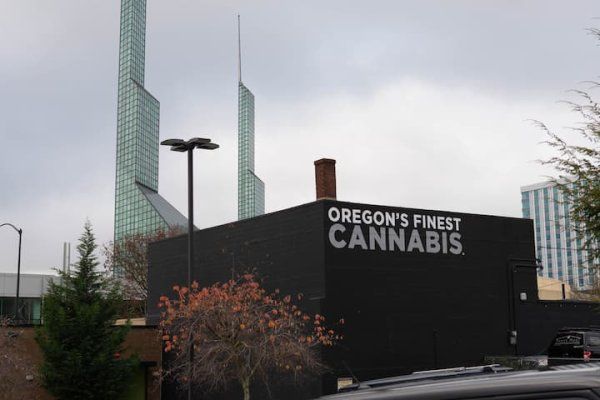According to a new report released by state regulators, Oregon's recreational cannabis market is in its "weakest" economic position since 2016.
According to the Oregon Liquor & Cannabis Commission's report released last week, cannabis producers in the state "entered 2021 exuberant and optimistic about the future of the market."
Demand for marijuana began to deteriorate in 2021 and was further dampened by a record harvest that same year, according to the report. This oversupply of cannabis products caused wholesale and retail prices to plummet, leading to a decline in overall sales from $1.2 billion down to $994 million in 2022.
As a result of the overabundance of supply and fading demand, the Oregon recreational cannabis market has been in its most precarious state since it opened for business about seven years ago, according to the report.
Previous market cycles were sustained primarily by steady growth in consumer demand, and Oregon's recreational marijuana program has succeeded in drawing the majority of in-state customers into the regulated sector. Regrettably, Oregon's recreational marijuana market is currently experiencing its weakest economic performance since 2016, as demand growth has diminished within the state and the production cycle is tardy to respond to the market signals. Additionally, stockpiles have been on an increase.
Post-pandemic sales dips have become a problem for Oregon's cannabis producers.
As the state's Liquor & Cannabis Commission reported last fall, sales in Oregon declined by about $15 million from October 2021 to October 2022.
According to the commission's latest report released last week, the "market dynamics on the demand side also point to a turbulent 2023."
Overall, the demand for consumer products since 2021 has been lower than in prior years. This is due to a change in distribution, with fewer outlets for usable marijuana and less willingness from processors to buy from producers. The consequence of this shift is a decrease in prices for licensees. Additionally, consumers have moved away from traditional usable marijuana and towards other product types, like edibles. This multifaceted change has driven down the demand trend line for good.
The commission noted that, despite the fact that the state’s recreational cannabis market “has proven resilient...two fundamental facts remain unchanged” until the federal government takes action and reschedules pot: “In-state supply is boundless, whereas in-state demand can only grow so much,” according to the report.
The state's legal market has positioned itself to compete successfully with the illicit market due to the state's extremely competitive marketplace, which offers low prices for consumers. The corollary, however, is that these low consumer prices force businesses to operate under low margins and extreme pressure. A report said the report did not know whether the margins will be narrower, or whether Oregon cannabis businesses can operate within them in 2023.
According to the Oregon Liquor & Cannabis Commission's report released last week, cannabis producers in the state "entered 2021 exuberant and optimistic about the future of the market."
Demand for marijuana began to deteriorate in 2021 and was further dampened by a record harvest that same year, according to the report. This oversupply of cannabis products caused wholesale and retail prices to plummet, leading to a decline in overall sales from $1.2 billion down to $994 million in 2022.
As a result of the overabundance of supply and fading demand, the Oregon recreational cannabis market has been in its most precarious state since it opened for business about seven years ago, according to the report.
Previous market cycles were sustained primarily by steady growth in consumer demand, and Oregon's recreational marijuana program has succeeded in drawing the majority of in-state customers into the regulated sector. Regrettably, Oregon's recreational marijuana market is currently experiencing its weakest economic performance since 2016, as demand growth has diminished within the state and the production cycle is tardy to respond to the market signals. Additionally, stockpiles have been on an increase.
Post-pandemic sales dips have become a problem for Oregon's cannabis producers.
As the state's Liquor & Cannabis Commission reported last fall, sales in Oregon declined by about $15 million from October 2021 to October 2022.
According to the commission's latest report released last week, the "market dynamics on the demand side also point to a turbulent 2023."
Overall, the demand for consumer products since 2021 has been lower than in prior years. This is due to a change in distribution, with fewer outlets for usable marijuana and less willingness from processors to buy from producers. The consequence of this shift is a decrease in prices for licensees. Additionally, consumers have moved away from traditional usable marijuana and towards other product types, like edibles. This multifaceted change has driven down the demand trend line for good.
The commission noted that, despite the fact that the state’s recreational cannabis market “has proven resilient...two fundamental facts remain unchanged” until the federal government takes action and reschedules pot: “In-state supply is boundless, whereas in-state demand can only grow so much,” according to the report.
The state's legal market has positioned itself to compete successfully with the illicit market due to the state's extremely competitive marketplace, which offers low prices for consumers. The corollary, however, is that these low consumer prices force businesses to operate under low margins and extreme pressure. A report said the report did not know whether the margins will be narrower, or whether Oregon cannabis businesses can operate within them in 2023.




